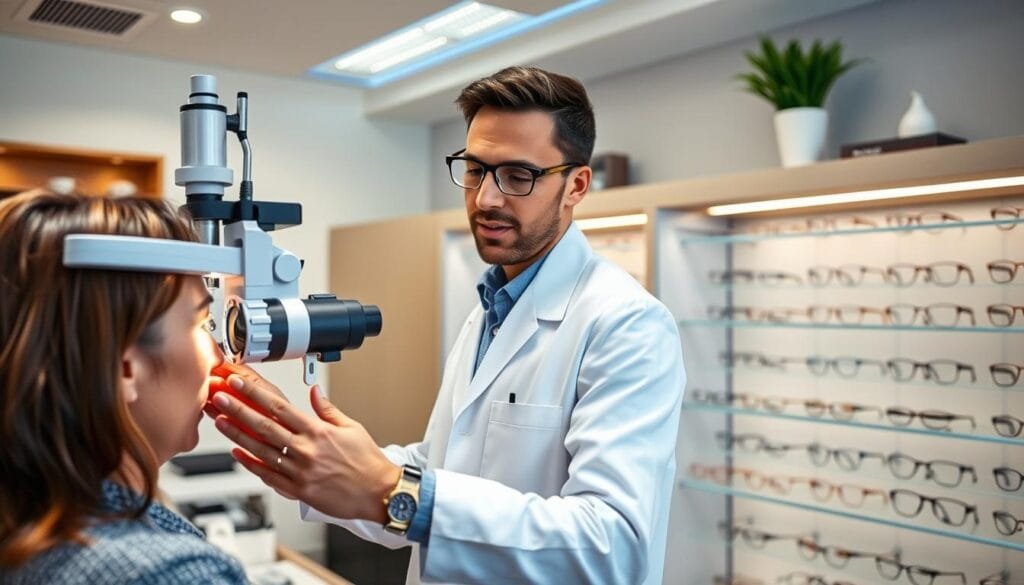Currently Empty: RM0.00
Did you know British pilots in WWII ate carrots to sharpen their vision in low light? While the story was partly wartime propaganda, it highlighted a real benefit of beta-carotene—a nutrient that helps the eyes adapt to darkness. Today, Wellness Concept combines modern science with holistic care to support eye health through nutrition and professional guidance.
This powerful antioxidant converts into vitamin A, which protects the cornea and boosts immunity. For those struggling with dim-light visibility, adding beta-carotene-rich foods or supplements can make a noticeable difference. Wellness Concept offers personalized consultations to help clients optimize their vision naturally.
Their clinic operates Monday to Friday (9:30 AM–6:30 PM) and weekends (10:00 AM–5:00 PM), making health support accessible even for busy schedules. Reach them via WhatsApp at +60123822655 to explore tailored solutions for brighter, healthier eyes.
Key Takeaways
- Beta-carotene enhances low-light vision by converting to vitamin A.
- Wellness Concept provides expert eye care services six days a week.
- Vitamin A supports corneal protection and immune function.
- Extended weekend hours cater to busy lifestyles.
- Diet and supplements play key roles in maintaining eye health.
Understanding Beta Carotene and Eye Health
Many colorful fruits and vegetables owe their vibrant hues to a powerful nutrient. Beta-carotene, a plant pigment, acts as a precursor to vitamin A—a vital compound for maintaining eye health. Found in carrots, sweet potatoes, and leafy greens, it supports vision by fueling essential biological processes.
What Is Beta Carotene?
Beta-carotene belongs to the carotenoid family, a group of antioxidants that give plants their red, orange, and yellow colors. Unlike vitamin A from animal sources, it’s a provitamin, meaning the body converts it into active retinol as needed. This makes it a safer option, as excess amounts are stored rather than causing toxicity.
How the Body Converts Beta Carotene to Vitamin A
The conversion happens primarily in the liver and intestines. Enzymes split beta-carotene molecules, creating retinol—the form of vitamin A used for eye health. This retinol helps produce rhodopsin, a protein critical for low-light vision, and maintains moisture in the cornea.
Without enough vitamin A, the eyes struggle. Severe vitamin deficiency can lead to xerophthalmia (dry eyes) or night blindness. The National Eye Institute highlights its role in preventing degenerative conditions, reinforcing the need for a diet rich in beta-carotene.
The Science Behind Beta Carotene Night Vision Benefits
Low-light vision relies on specialized proteins that respond to minimal light exposure. This process, called phototransduction, begins in the retina’s rod cells. Here, a pigment called rhodopsin plays the starring role.
Rhodopsin: The Night Vision Protein
Rhodopsin is a light-sensitive molecule in rod cells. When light hits it, the protein splits, triggering electrical signals to the brain. This is how eyes help see in dim settings.
Without enough vitamin A, rhodopsin can’t regenerate quickly. The Blue Fin Vision Clinic notes that patients with deficiencies often struggle with delayed dark adaptation.
How Vitamin A Supports Low-Light Vision
Vitamin A rebuilds rhodopsin after it breaks down. The AREDS study found a 25% lower risk of age-related macular degeneration with proper intake.
- Normal function: Rapid rhodopsin recycling ensures seamless night vision.
- Deficiency impact: Slowed regeneration causes blurry vision in darkness.
Foods like mangoes and spinach provide the nutrients needed to keep this system running smoothly.
Foods Rich in Beta Carotene for Optimal Eye Health
Your plate holds the key to sharper sight through nature’s vibrant pigments. A balanced diet featuring orange, red, and dark green foods can significantly boost eye-friendly nutrient levels. These colorful choices provide the building blocks for healthy vision.
Top Vegetable Sources
Certain veggies stand out for their vision-supporting properties. Cooked carrots lead the pack—their bioavailability increases by 30% when heated. Other excellent choices include:
- Sweet potatoes (1 cup provides 400% daily vitamin A needs)
- Kale (best lightly steamed to preserve nutrients)
- Red peppers (highest content when fully ripe)
Fruits Packed With Beta Carotene
Nature’s candy also delivers vision benefits. Cantaloupe offers nearly half your daily requirement in one slice. Mangoes and apricots are other sweet options. For maximum nutrition, choose fully ripened fruits.
Absorption Tips for Maximum Benefits
Pair these foods with healthy fats like olive oil or avocado. A spinach salad with nuts boosts absorption by 50%. Cooking methods matter too—roasting sweet potatoes preserves more nutrients than boiling.
Note: While rare, excessive intake can cause harmless skin yellowing (carotenodermia). Stick to 3-6 mg daily from whole foods for optimal benefits.
Beta Carotene’s Role in Preventing Age-Related Eye Conditions
As eyes age, they face increased oxidative stress that can lead to vision decline. Antioxidants like beta-carotene combat free radicals, slowing damage to retinal cells. This proactive defense is critical for maintaining clarity and function over time.
Protecting Against Macular Degeneration
The retina’s macula is especially vulnerable to oxidative damage. Beta-carotene neutralizes harmful molecules, reducing the risk of age-related macular degeneration (AMD). Studies show it works alongside lutein and zeaxanthin for layered protection.
However, the AREDS2 formula replaced beta-carotene with these alternatives for smokers. “High-dose beta-carotene may increase lung cancer risk in smokers,” notes the National Eye Institute. Non-smokers still benefit from its corneal and retinal support.
Reducing Risk of Corneal Damage
Beta-carotene helps maintain the cornea’s epithelial layer, preventing dryness and ulcers. It also supports eye health by regulating tear production. Compared to other carotenoids, it’s particularly effective at preserving surface moisture.
- Antioxidant action: Shields retinal cells from UV and blue light damage.
- Smoker alternatives: Lutein/zeaxanthin offer safer AMD prevention.
- Professional care: Wellness Concept’s AMD screenings detect early signs.
For personalized guidance, their specialists tailor nutrient plans based on lifestyle and risk factors. Early intervention can significantly delay vision decline.
The World War II Carrot Myth: Separating Fact From Fiction
During World War II, a clever tactic shaped public beliefs about carrots and vision. The British Royal Air Force (RAF) spread a story that pilots ate carrots to see better in the dark. In reality, this was propaganda to hide their new radar technology from enemies.
Origins of the Night Vision Propaganda
The RAF’s tale claimed carrots gave pilots an edge in night missions. Newspapers and posters amplified the idea, turning carrots into a patriotic symbol. While the myth boosted morale, it had little scientific backing.
Radar was the real secret. By 1940, Britain’s air defense relied on advanced systems like Chain Home. To mislead spies, they credited carrots for their success. The campaign worked so well that the legend persists today.
What Carrots Actually Can (and Can’t) Do
Carrots improve night vision only if someone has a vitamin A deficiency. They can’t enhance normal vision beyond healthy levels. Research shows:
| Claim | Reality |
|---|---|
| Carrots grant superhuman night vision | No evidence; corrects deficiencies only |
| Eating more = sharper sight | Excess vitamin A isn’t stored for vision |
| Pilots relied on carrots | Radar was the true advantage |
Modern studies confirm that while carrots support eye health, they aren’t magic. A balanced diet matters more than any single food. The World War story remains a fascinating example of propaganda’s power.
Other Essential Nutrients for Comprehensive Eye Care
Sharp vision isn’t just about one nutrient—it’s a team effort. While beta-carotene plays a starring role, antioxidants like lutein and zeaxanthin provide critical support. These nutrients filter harmful light and combat oxidative stress, offering layered protection for your eyes.

Lutein and Zeaxanthin: The Macular Protectors
These yellow pigments concentrate in the macula, acting like natural sunglasses. They absorb blue light, reducing glare and preventing retinal damage. The AREDS2 formula includes 10 mg lutein and 2 mg zeaxanthin daily for optimal eye health.
Foods rich in these nutrients include:
- Egg yolks (choose pasture-raised for higher levels)
- Corn (cooked with butter boosts absorption)
- Leafy greens like spinach and kale
Vitamin C and E: The Antioxidant Power Pair
These vitamins recycle each other, enhancing their protective effects. Vitamin C repairs connective tissues in the cornea, while vitamin E shields cell membranes. “Together, they reduce cataract risk by 60% in long-term studies,” notes the WHO.
| Nutrient | Daily Intake | Top Sources |
|---|---|---|
| Lutein | 10 mg | Kale, peas, eggs |
| Zeaxanthin | 2 mg | Oranges, peppers, grapes |
| Vitamin C | 90 mg | Guava, strawberries, kiwi |
| Vitamin E | 15 mg | Almonds, sunflower seeds, avocado |
Wellness Concept’s nutrition counseling tailors these guidelines to individual needs. Their experts assess diet gaps and recommend targeted foods or supplements for complete care.
Signs You Might Need More Beta Carotene in Your Diet
Struggling to adjust when lights dim? Your diet might be missing key nutrients. Low levels of essential compounds can subtly impact how well your eyes function, especially in challenging conditions.
Night Vision Difficulties
Delayed dark adaptation, or nyctalopia, often starts with minor annoyances. Sensitivity to glare or needing extra time to help see in dim rooms are early warnings. Without enough vitamin A, rhodopsin regeneration slows, worsening these symptoms.
Advanced vitamin deficiency may cause:
- Bitot’s spots: Foamy white patches on the conjunctiva.
- Conjunctival xerosis: Dry, thickened eye surfaces.
Dry Eye Symptoms
Evaporative dry eye links directly to nutritional gaps. A unstable tear film leaves eyes gritty and red. Beta-carotene supports mucus production, which keeps surfaces moist.
Wellness Concept’s blood tests pinpoint deficiencies accurately. Their team then crafts personalized plans—whether through diet adjustments or targeted supplements—to restore balance.
Balanced Diet vs. Supplements: What Experts Recommend
Getting the right nutrients for eye health isn’t always straightforward. While a balanced diet should be the foundation, some situations call for additional support. Experts weigh in on when food alone might fall short and how to supplement safely.
When Food Sources Aren’t Enough
Certain groups may struggle to maintain optimal nutrient levels through diet alone. These include:
- People with digestive disorders affecting absorption
- Those following restrictive diets (vegan, low-fat)
- Individuals with increased nutritional needs (pregnant women)
Food sources typically offer better bioavailability than synthetic supplements. For example, cooked carrots provide 30% more usable nutrients than isolated beta-carotene capsules. However, professional guidance can help bridge these gaps effectively.
Potential Risks of Over-Supplementation
More isn’t always better when it comes to nutrients. The WHO sets strict upper limits for vitamin A (3,000 mcg daily for adults). Exceeding these can cause:
- Liver damage from hypervitaminosis A
- Increased lung cancer risk (25% higher in smoking supplement users)
- Bone thinning and joint pain
“We always assess individual needs before recommending supplements,” says a Wellness Concept nutritionist. Their approach combines blood tests with dietary analysis to create personalized plans. This prevents both deficiencies and excesses for complete eye care.
For most people, a colorful balanced diet provides sufficient nutrients. Supplements should only complement—not replace—whole foods unless medically advised. Wellness Concept’s experts help clients navigate this balance with evidence-based recommendations.
Professional Eye Care for Optimal Vision Health
Regular check-ups are the cornerstone of maintaining clear sight and preventing long-term issues. While a nutrient-rich diet supports eye health, professional eye care detects problems before symptoms appear. Wellness Concept combines advanced diagnostics with personalized treatment plans for comprehensive vision support.

When to Seek Specialist Advice
Some symptoms demand immediate attention from an eye care professional. Don’t wait for annual exams if you experience:
- Sudden blurriness or vision loss
- Flashes of light (photopsias) or floaters
- Persistent redness or pain
- Difficulty adjusting to darkness
These could signal retinal detachment, glaucoma, or infections. Early intervention often prevents permanent damage. Wellness Concept’s same-day appointments ensure timely treatment when urgent issues arise.
Wellness Concept’s Comprehensive Eye Services
Their clinic uses cutting-edge technology for precise assessments. Services include:
| Service | Purpose |
|---|---|
| OCT Scans | 3D imaging of retinal layers |
| Visual Field Testing | Detects peripheral vision loss |
| Corneal Topography | Maps surface irregularities |
| Tear Film Analysis | Diagnoses dry eye causes |
Certified ophthalmologists interpret results during consultations. They explain findings in simple terms and recommend tailored solutions. For dietary support, they may suggest nutrient-rich juices alongside medical treatment.
Contact Information and Business Hours
Wellness Concept makes expert eye care accessible with flexible scheduling:
- Weekdays: 9:30 AM–6:30 PM
- Weekends: 10:00 AM–5:00 PM
Reach them today via WhatsApp at +60123822655 for instant consultation booking. Their team responds within 30 minutes during operating hours, including weekends.
Conclusion: A Clear Vision for Your Eye Health Journey
Taking proactive steps today ensures brighter tomorrows for your eyes. A colorful diet, regular check-ups, and targeted nutrients like beta-carotene work together to support holistic eye health.
Wellness Concept makes it easy to prioritize your vision health. Their team offers personalized guidance—from dietary tips to advanced professional eye care. Reach them via WhatsApp at +60123822655 or learn more about beta carotene night vision.
For urgent concerns, after-hours protocols ensure you’re never left without support. Every choice you make now protects your sight for years to come.
FAQ
What is beta carotene, and how does it help the eyes?
Beta carotene is a plant pigment that the body converts into vitamin A, which is essential for maintaining healthy eyes. It supports the production of rhodopsin, a protein that helps with low-light vision.
Can eating carrots really improve my ability to see in the dark?
While carrots are rich in beta carotene, which supports eye health, they won’t give you superhuman night vision. The idea stems from World War II propaganda, but a balanced diet with proper nutrients does help overall eye function.
What foods are high in beta carotene besides carrots?
Sweet potatoes, spinach, kale, and butternut squash are excellent sources. Fruits like cantaloupe and apricots also contain high levels of this nutrient.
How does beta carotene help prevent age-related eye conditions?
It may help reduce the risk of macular degeneration by protecting retinal cells from oxidative damage. A diet rich in antioxidants supports long-term eye health.
Are supplements necessary if I don’t get enough beta carotene from food?
Most people can meet their needs through a balanced diet. However, if you have a deficiency, a doctor may recommend supplements. Overuse can lead to side effects, so professional advice is best.
What other nutrients are important for eye health?
Lutein, zeaxanthin, and vitamins C and E work together with beta carotene to support vision. These antioxidants help shield the eyes from harmful light and aging effects.
When should I see a specialist about my vision concerns?
If you experience persistent dryness, trouble seeing at night, or sudden vision changes, schedule an eye exam. Early detection helps prevent serious conditions.



